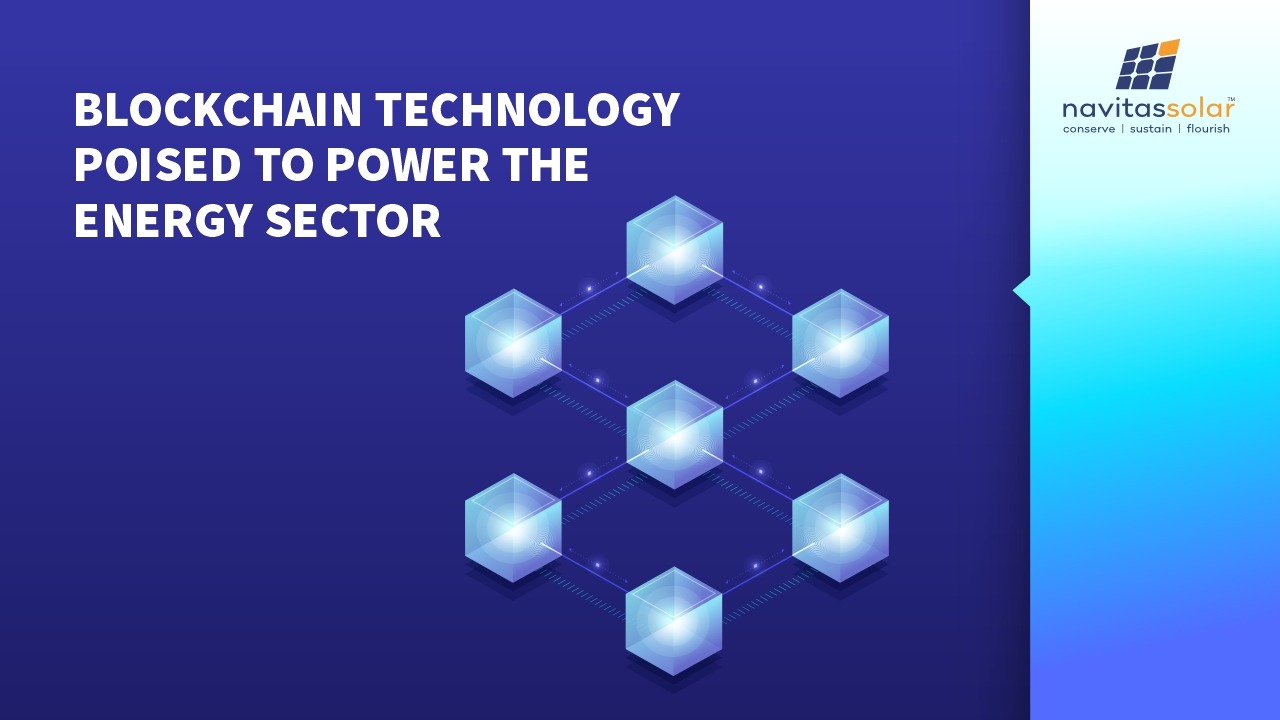Blockchain Technology Poised To Power The Solar Energy Sector
The primary applications of blockchain technology have been in the realms of banking and digital money. The potential applications of distributed ledger technology are gradually becoming revealed and being applied to other sectors as well. The technology’s potential isn’t limited to the financial sector; it is also being utilized to revolutionize the renewable energy sector, especially the solar energy sector. Indeed, blockchain is poised to revolutionize the renewable energy industry in a variety of ways. It can certify the source of green energy and make energy grids more accessible through real-time data sharing, and enabling transactions between parties.
Blockchain enables traditional energy consumers to produce and sell power in a decentralized and distributed energy-sharing system, as it allows tracked, verifiable, and secure transactions between two parties. This also removes the middle system who has long been relied upon to transfer information and goods between buyers and sellers.
If you want to share a database over a network of computers in a secure manner, then blockchain is the way to do it. Sometimes called a “digital ledger,” this system can be understood as thousands of identical spreadsheets kept in a decentralized network.
Users, producers, grid operators, and even utilities can all reap benefits from this peer-to-peer energy trading system. Cost savings for end users and producers have been confirmed by the International Renewable Energy Agency’s study on the topic of distributed energy-sharing systems.
While this is an important aspect of blockchain technology, it is not its only function. Further, it allows parties to trust one another to follow through on their end of agreements when conducting business with the shared data. This essentially aids in resolving the problem of ownership transfer and producing a system with improved security and traceability. It also makes third-party verification of the sale of products and services unnecessary, or at least far less time-consuming.
In essence, blockchain technology enables the creation of a decentralized energy supply system that is both cheaper and more efficient than the conventional one. Our current energy system can be simplified by establishing direct connections between energy providers and end users.
Navitas Solar, being at the forefront of manufacturing and providing solar energy solutions, is actively exploring ways of adopting and integrating the emerging technology of blockchain into its operations. The dentralised, transparent and secure record-keeping through blockchian paves a way for better dealing between the individual solar power producers and the state-owned power-grids systems.
Certain small power producers don’t have access to traditional markets for accessing green energy. With the use of blockchain technology, we can create an environment where people who can avail the benefits of solar, can install the rooftop or ground mount solar at their premises can they can generate energy and share/trade with the use of blockchain. Likewise for other consumers who can’t adopt green energy, can buy green energy using blockchain tokens. Also people who can adopt storage can have storage options with them and can trade energy when required in the grid in terms of blockchain.
Basically, a company can build a tool to monitor electricity generated from solar energy projects and provide the project owners with a way to create renewable-energy certificates in terms of blockchain. In this way, whole energy community can be designed. When blockchain tehcnilogy is applied to energy sector, it offers new opportunities to legitimize, secure and enhance energy transfers automatically between energy producers and consumers avoiding going with the path through intermediaries. This shift can make blockchain relevant for producing and consuming electricity in a local loop. This can turn out to be a great implication for different energy sectors, such as energy communities in areas with no access of energy. Advantage of electric vehicles(battery swapping) can also be implemented in this sector in terms of blockchain. In addition, it is worthy to note that these applications can be converged from a technological view point without changing the electrification process.
Some of the sectors like sharing apartment, car, funding have already started using this technology, so the energy seems to be following this movement too. Jeremy Rifkin quoted , “thanks to my solar panel, I will earn 2 bitcoins that I will spend at a local fruit and vegetable producer” in his book ‘The Third Industrial Revolution’. This is what blockchain technology can do.


 Online | Privacy policy
Online | Privacy policy
Related Posts
You May Also Like
Bonito Series: Driving Innovation in…
Read MoreTOPCon Series: The Next Generation…
Read MoreValuable Points to Remember During…
Read MoreNavitas Planet Partners with Hysolwin…
Read MoreDriving Towards a Sustainable Future:…
Read MoreWhy Do Top-Grade EVA Sheets…
Read MoreBonito Series: Driving Innovation in…
Read MoreTOPCon Series: The Next Generation…
Read MoreValuable Points to Remember During…
Read MoreNavitas Planet Partners with Hysolwin…
Read MoreDriving Towards a Sustainable Future:…
Read MoreWhy Do Top-Grade EVA Sheets…
Read MoreBonito Series: Driving Innovation in…
Read MoreTOPCon Series: The Next Generation…
Read MoreValuable Points to Remember During…
Read MoreNavitas Planet Partners with Hysolwin…
Read More